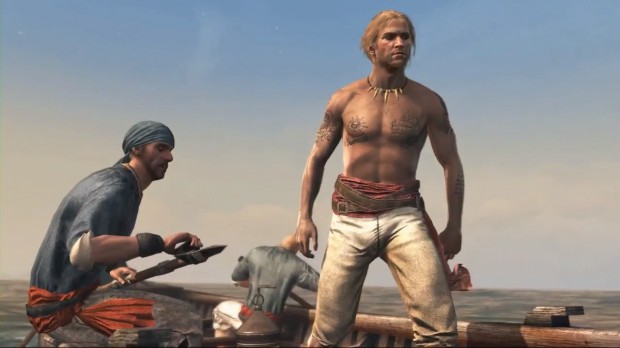Let me tell you about the best story I’ve read in a while.
(Ok, maybe I’m not the most qualified person to decide which story is “best”. Maybe “favorite” would be a better word. But, whatever. It’s the best.)
Salvage, released in June by Lightspeed, is a dungeon-crawl in space. It seems like a pretty straightforward piece — go into the dead ship, get the black box, get out. And yet….
Item A: Here’s the first sentence:
“You two ready?” I ask.
And, boom. Five words, lots of info.
- Something’s about to happen. So, you’re hooked.
- The narrator is in charge of at least two people.
- She’s a no-nonsense type. It’s not “Are you two ready?” or “Are you both sure you’re ready to go? Did you check your hoses?”
This last item is the crux here. Aside from the very capable character introduction here, the narrator’s relationship with the crew is what this story’s all about. Five words.
Item B: Happy Birthday, Captain
The story plays out like a horror piece, all dark passageways and frozen corpses. But right in the middle, there’s this odd bit of description. First, it’s “all teeth and eyes, arms reaching”, and you expect to see a floating body. But it’s a photograph — a Happy Birthday sign on the Captain’s door. It feels like a bit of horror movie “oh, it was just the cat”, and you dismiss it as such.
Except that, once again, this is what it’s all about. Here’s a captain whose crew teases him and puts funny signs on his cabin door. No such hijinks on the narrator’s ship.
Item C: A thousand little events
No space zombies. No dripping aliens. Just a salvage. But at the briefing, we see that the event has changed the lives of these people. The two who were ready in the first line are now sitting close enough for their shoulders to touch. That’s new. And in the last line, we see the change in the narrator. (I’ll leave that to you to go and read.)
A small change. Minuscule. And that’s what resounds so deeply with me. This is a story about a commonplace event which changed a person’s way of looking at herself. A brief moment, the kind which would go unnoticed by just about anyone. But something happened right then, and it made a difference.
The subtlety here is perfectly crafted. Kudos to Carrie Vaughn for writing a sci-fi story which any contemporary literature or writing class would do well to read.





 I found myself in a debate recently about which of the NES Castlevania series is the best. Yes, it gets like that sometimes. One person insisted that 2 was superior to the others. The last time I had played that game was when it was first released, and I had finished it in less than a day. My memories of it were of the “meh” variety.
I found myself in a debate recently about which of the NES Castlevania series is the best. Yes, it gets like that sometimes. One person insisted that 2 was superior to the others. The last time I had played that game was when it was first released, and I had finished it in less than a day. My memories of it were of the “meh” variety.
